Joan Micklin Silver’s Chilly Scenes of Winter (1979): Criterion Blu-ray review
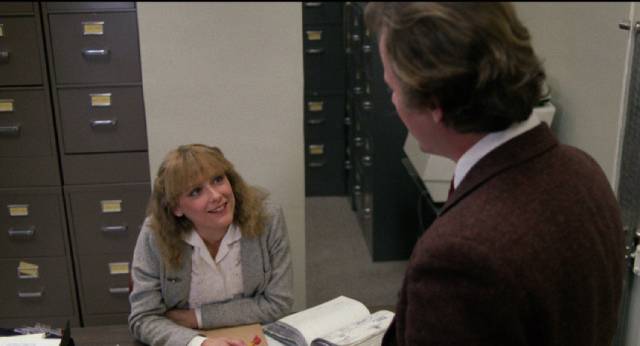
It seems absurd that less than fifty years ago, there were almost no women directors working in mainstream Hollywood. Although there were a number of prominent female filmmakers in the silent era, they disappeared with the coming of sound. From the late ’20s to the early ’40s, there was only Dorothy Arzner; it was more than half a decade after Arzner’s final feature in 1943 before Ida Lupino began her own directing career (initially uncredited), making a handful of notable movies in the early ’50s before moving to television for the next fifteen years.
Until the ’70s, women largely remained on the fringes, making independent or experimental films (Maya Deren, Shirley Clarke, Barbara Loden). While their presence really began to be felt in the ’80s, the ’70s represented an uphill climb, with even someone as obviously talented as Elaine May managing to make only three movies in almost two decades after her successful debut with A New Leaf in 1971. Joan Micklin Silver began as a writer of short educational films, selling a feature script to Universal which ended up being directed by Mark Robson (Limbo, 1972). Told by one executive that women simply weren’t fit to direct movies, she ended up making her first feature through an independent company she formed with her husband, real estate developer Raphael Silver.
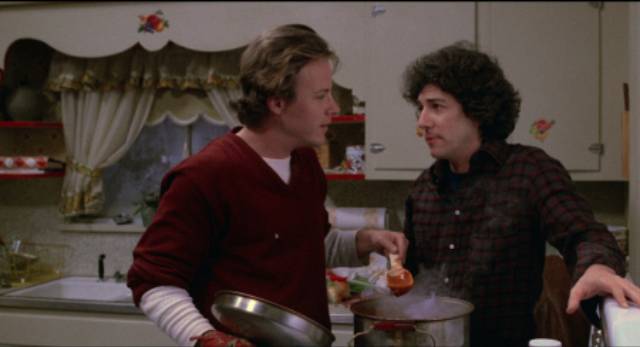
That debut, Hester Street (1975), seemed like an act of defiance against the industry – a story about immigrants in New York City around the turn of the century, shot in black-and-white and featuring subtitled Yiddish dialogue, it was dismissed by distributors as only suitable for “ethnic” audiences, so the Silvers distributed it themselves and it went on to garner positive reviews, some box office success and an Oscar nomination for star Carol Kane. Micklin Silver took the same independent route with her second feature, Between the Lines (1977), an ensemble comedy about a radical newspaper founded during the turbulent ’60s but beginning to lose its sense of purpose in the late ’70s. Again well-received, winning a number of film festival and critics’ awards, it paved the way for Micklin Silver’s first studio-backed movie. Made on a low budget, with three first-time producers, it had the luck to be financed by United Artists as that company was distracted by the debacle of Michael Cimino’s Heaven’s Gate (1980), so Micklin Silver and her collaborators were left entirely to their own devices.
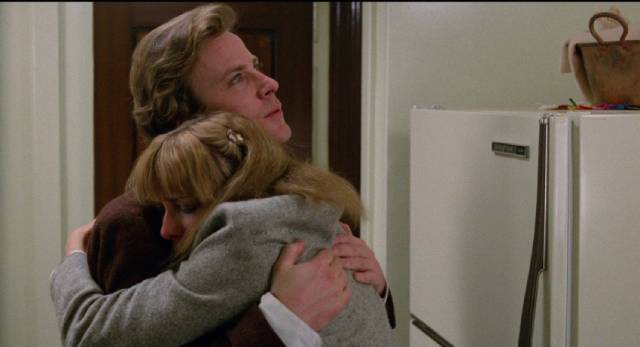
I hadn’t previously seen Chilly Scenes of Winter (1979) – adapted from a novel by Anne Beattie and originally released as Head Over Heels – and had the impression it was a romantic comedy with an appealing cast headed by John Heard, who was in the middle of the notable first act of a long career which never quite lived up to its early promise, and Mary Beth Hurt, who had made her feature debut the previous year in Woody Allen’s pretentious Interiors (1978). Ably supported by a fine cast featuring Peter Riegert, Nora Heflin, Kenneth McMillan and none other than Gloria Grahame, the ingredients for an amusing comedy about relationships all seemed to be firmly in place.
And yet the results are genuinely unsettling. As I watched, I found myself struggling with the film’s tone, light and breezy on the surface, but continually disrupted by darker undercurrents. Micklin Silver herself described it as the story of two characters emotionally out of sync, of someone who loves someone else more intensely than they are loved in return. I have to wonder how the film would have struck me if I had seen it in 1979, before decades of shifting attitudes towards behaviours which now seem very problematic.
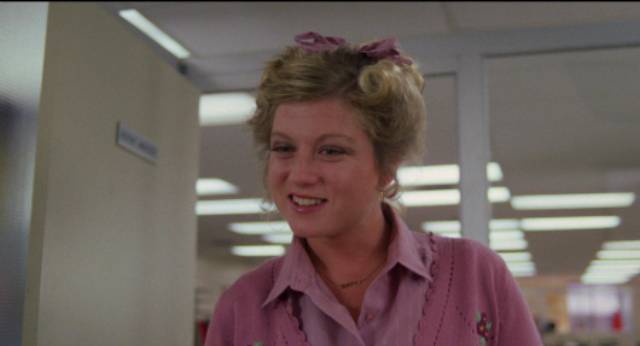
Charles (John Heard) is an office drone in Salt Lake City who is tormented by feelings for Laura (Mary Beth Hurt), a woman he had a relationship with a year ago and whom he desperately wants to get back. He’s consumed and distracted by this desire and almost everything he sees and hears reminds him of Laura, triggering memories of their time together. But even in the earliest moments of their brief relationship, something is off-kilter and as the parallel lines of the narrative – past and present – unfold, things become increasingly uncomfortable.
Charles first meets Laura at the office and, while seemingly charming, imposes himself on her despite her obvious indications that she wants him to back off. But he persists and finally gets her to agree to a date. That evening, they end up back at her apartment and he follows her into the kitchen where he finds her crying. It turns out she’s just left her husband and stepdaughter and is conflicted by feelings of confusion and guilt. This makes her vulnerable and Charles takes it as an opportunity.
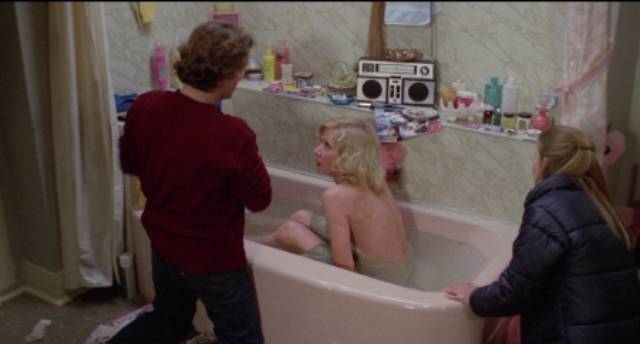
It becomes increasingly clear that he’s a narcissist, that in fact he never really sees Laura as a fully autonomous individual; rather, she’s a projection of his romantic fantasy and the gap between her own emotional state and what he wants from her quickly widens. Her stubborn insistence on remaining herself makes him more aggressive, leading to a couple of unsettling moments. He responds to her resistance at one point by assuming a parody of “traditional masculinity”, telling her he won’t give up his drinking buddies and their poker nights and bowling for her, a bit of play-acting which escalates to an accusation of infidelity and a threat to “beat the shit” out of her, which he immediately tries to defuse by saying he’s just joking. But we, and she, have seen the edge beneath his rather stifling demands for her affection.
Her continued holding back leads to an even more disturbing moment in which, as she pulls away from him, he says bluntly “I’m going to rape you”. By this point, as an observer, you can only hope that Laura gets away from him as quickly as possible – which she does, returning to her husband, real estate agent Ox (Mark Metcalf), and his young daughter. But Charles refuses to admit defeat and begins to stalk her. He grills co-worker Betty (Nora Heflin) about Laura’s life; he drives to her house at night and parks outside staring up at the lighted windows; he even drives by her stepdaughter’s school and watches as Laura picks the girl up.
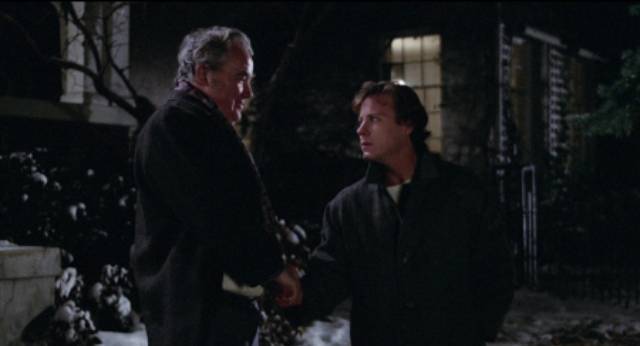
But despite this disturbing behaviour, Micklin Silver remains sympathetic to Charles. Could it be that in 1979 what now so clearly appears to be abusive behaviour was still perceived, even by a woman director, as romantic charm? Heard certainly plays Charles’ self-centred obsession with a great deal of superficial charm, which itself now sets off alarms. What we see of other parts of his life may help to explain how he became the way he is, but even if this elicits some empathy it can’t undo the troubling sense of menace we keep glimpsing beneath the surface.
Charles’ mother Clara (Gloria Grahame) is herself emotionally unstable, given to phoning to say she’s going to kill herself and actually attempting suicide occasionally (at one point she winds up in the psych ward). Her father had committed suicide and her husband, Charles’ father, had died suddenly of a heart attack at thirty-nine. Death hangs over the family and Charles doesn’t like his stepfather Pete (Kenneth McMillan), though their antagonism does seem to thaw a little after the psych ward episode.
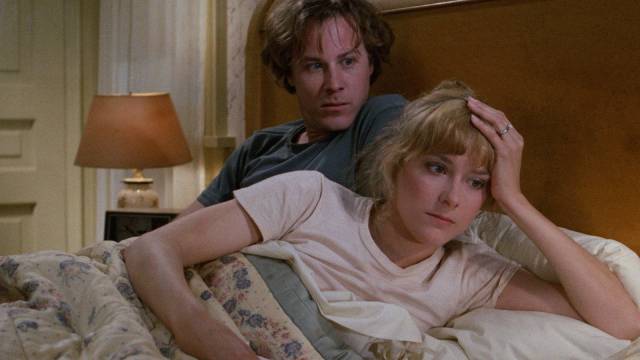
Given this background, Charles’ obsession with forming a lasting romantic relationship with Laura is comprehensible – he wants some kind of emotional stability in his life – but he’s just not equipped to achieve this in a mature way. He’s trapped in a childish solipsism and unable to see that Laura simply doesn’t conform to the image he tries to impose on her. His escalating intrusions into her life – climaxing with a very uncomfortable scene in which he deceptively manipulates Ox into taking him back to the couple’s house, where he comes out and bluntly tells Ox that he loves Laura – generate tension rather than humour and, contradicting the typical trajectory of romantic comedy, you really want Laura to be free of him.
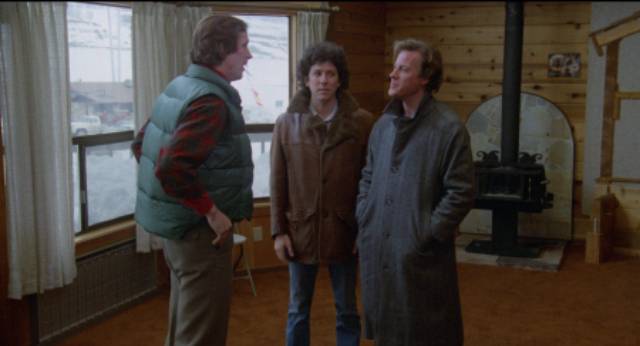
This tension remains right to the end, when Laura has again left Ox and is once more emotionally vulnerable. Charles gives her an ultimatum – accept him now without reservation or he’ll walk away forever – and there’s a moment when you fear she’ll crumble. It’s a huge relief when she doesn’t follow him and he finally seems to accept that his passion has been an illusion all along. Ironically, the film as it now exists is not as it was originally released (as Head Over Heels), but is a revised version released a few years later, retitled Chilly Scenes of Winter (the title of the source novel, but rejected by the distributor as too bleak). The Criterion disk includes the original ending as an extra and it’s just what I’d feared – a happy conclusion in which Laura turns up at Charles’ home and submits to the supposed domestic bliss of a life with him. This seems at odds with the off-kilter, unconventional approach taken by Micklin Silver to the romantic comedy elements of the narrative and likely didn’t play well even in 1979, justifying her deletion of the coda in the early ’80s.
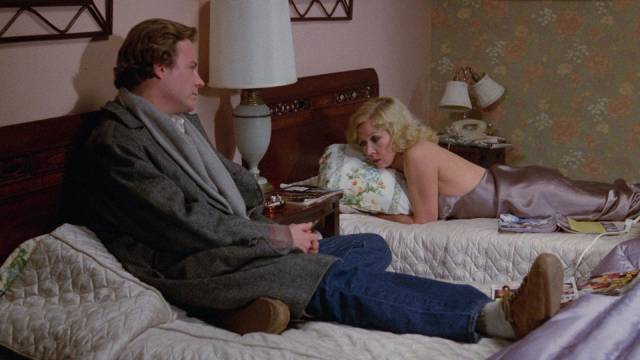
Charles is in a sense a hangover from the 19th Century romantics, a fresh version of someone like Young Werther, but we can now see the pathology underlying the tragic romanticism. By extension, Chilly Scenes of Winter exposes the unhealthy foundations of classic romantic comedy, which so often involves a character (usually the man) working relentlessly to break down the resistance of the object of his desire. The core of such narratives is one character’s attempt to reshape and control the other, to transform them into a reflection of the protagonist’s own desire. How much of the film’s critique is fully conscious – and how much due to a woman’s different perspective on these familiar tropes – I can’t say, but it was a relief when Laura finally, emphatically, resisted Charles’ determination to impose his projected image on her.
My uncertainty about how to read the film’s tone is not a reflection on Micklin Silver’s skills as a filmmaker – her direction of the cast is impeccable, with performances conveying subtlety and nuance, and scenes frequently working on multiple levels which embody conflicted emotions. Bobby Byrne’s cinematography with its wintry imagery effectively underlines these emotions which refuse to slide into sync the way convention insists they should. It’s the refusal to provide easy conventional interpretations which makes the film as interesting as it is unsettling. I’ve seldom come across a movie which has made me feel so unexpectedly uncomfortable while also providing many entertaining moments.
*
The disk
The new 4K transfer from the original negative on Criterion’s Blu-ray reflects the intentional drabness of the image; this is indeed a chilly world in which emotions are often tamped down.
The supplements
Apparently there was a commentary from Micklin Silver and producer Amy Robinson on the out-of-print Twilight Time Blu-ray which Criterion haven’t acquired for this release, but there are nonetheless several worthwhile extras, beginning with an excerpt from a Directors Guild of America interview with Micklin Silver from 2005 (14:34), in which she talks about the project and her sympathy for Charles and his romantic obsession.
A three-way interview (28:07) with Amy Robinson, Griffin Dunne and Mark Metcalf, three actor friends who acquired rights to the novel as their first joint venture as producers, provides an interesting account of how they managed to pull off a small, unconventional project without studio interference thanks to the fortuitous timing which saw United Artists consumed with the problems on Heaven’s Gate … and the corollary which saw the company having no clue how to market the finished film. Initially dumped with a completely inappropriate advertising campaign, it was salvaged three years later thanks to the formation of United Artists Classics, a subsidiary company run by more sympathetic executives who even provided the opportunity to change the title back to the original Chilly Scenes of Winter and drop the awkward, unsatisfying “happy ending” to give the film a more plausibly ambiguous conclusion.
That original ending (8:41) is included for reference.
Finally, as if to confirm just how much women filmmakers were outside the Hollywood mainstream back then, there’s a documentary from 1983 called Joan Micklin Silver: Encounters with the New York Director (45:32) made by German filmmaker Katja Raganelli, with narration in English-subtitled German. This covers Micklin Silver’s mid-western background, her work in theatre and eventual move to New York City with her family, and her beginnings in film writing and eventually directing educational shorts; the experience of selling a script to Hollywood, which she was detached from after “creative differences” with director Mark Robson, determined her decision to become a director herself. In her interviews, Micklin Silver comes across as committed and realistic about her place in the industry up to and including the production (and resurrection) of Chilly Scenes of Winter, and the practical issues involved in forming her own independent production company with her husband (who eventually directed a couple of features himself).
There’s also a trailer (1:44) for the original, mishandled release which implies that Head Over Heels is a wacky romantic comedy, rather than the more complicated, harder to pin down film it actually is.
The booklet essay is by academic Shonni Enelow.
Comments
One of my very favorite directors. She told me she had offered the Peter Riegert part initially to Jeff Goldblum who turned it down because he didn’t want to be a supporting player to Heard since they were equals in Between the Lines. According to Joan he told her later he should have accepted. As for John Heard, would that he had been given more parts worthy of his talent. He had both an original comedic style and great dramatic skill – the latter vividly displayed in Cutter And Bone.
I always liked Heard, who had charm to spare (I first saw him in Cat People and C.H.U.D.), but it wasn’t until I finally saw Cutter’s Way six years ago that I realized what a great actor he was.
Whoops! I meant Cutter’s Way. Cutter And Bone is the title of Newton Thornburg’s excellent source novel.
Though it was produced under the original title, which I guess was eventually determined to be less commercial than Cutter’s Way – such are the opaque ways of studio marketers!